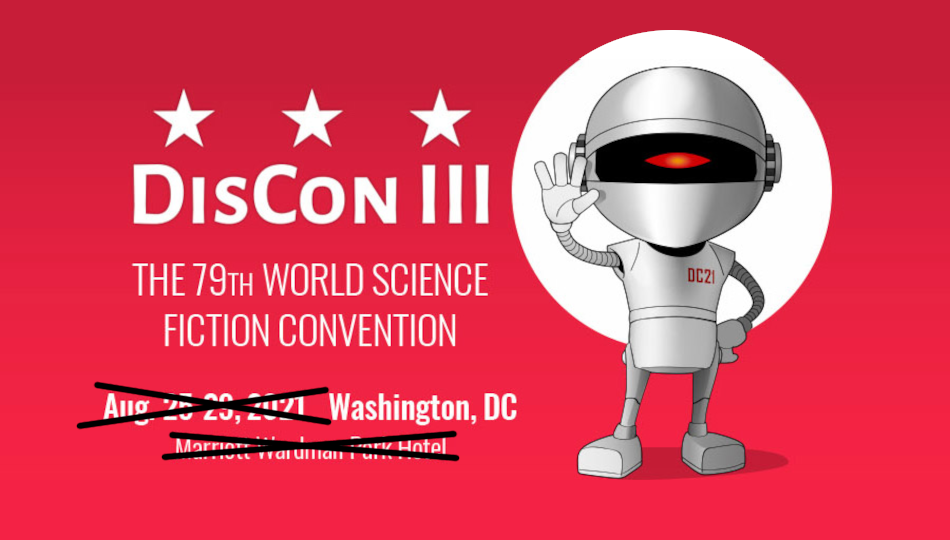Maybe.
Quiene sabe? After three trips, Dona Sadock and I seriously considered moving to Mexico. Lee Wood, my ex-wife, and I did move to Paris, and after we broke up, Lee moved to New Zealand, Terry Champagne and I did spend a year in London. The point being that by now, I’ve lived in three countries, with three different mates or alone, and adventured with one or the other or all three at something like twenty countries and still counting.
Never as mere tourists but as citizens of the planet and most often than not as ambassadors of science fiction. Or to put it the other way, SF being our unofficial but transofficial passports.
Which does not mean that I am not a legal citizen of the United States, a French citizen of the heart, a cultural and literary son of Britain and Mexico a cousin of more peoples and cultures than I have fingers on my right hand, and maybe my left hand too. And what I’ve learned is that being a citizen of the planet is not being a citizen of anywhere, au contrare, a citizen of everywhere you travel, every culture, every literature, every cuisine, every music, every people, you have enjoyed to encounter.
This planet is not a world of nations. The Earth is a planet of peoples.
If only of this world of peoples would mature to understand this reality and enjoy it. Because this is the only reality we face, and if we don’t learn to enjoy it, the result will be, as it always has been, a planet of warring tribes and the only thing that is different now is that technology has put the powers in hands the of the world of nations to it.
This may indeed be speculative fiction, the literature of the possible futures, for better or worse, the literature that admits that the future we get is the future we make.
And the World War III is alas the current present of the future we are making. It may now be a war of turf between two sovereign nations, Russia and Ukraine but it began not so much as a war between two or even more peoples, what is ironically called a civil war, though of course there is nothing civil about it.
Putin may have said many lies, but when he declared that the destruction of the Soviet Union was a tragic disaster, that wasn’t one of them. And I myself as both a citizen of the world and a writer of speculative fiction found myself in it via my novel RUSSIAN SPRING.
When I wrote it, I wrote it as hopeful speculation, and it was first translated into Russian and published in the Soviet Union of Gorbachev before it was published anywhere else because that was how I wanted it. But as it was about to be published in the United States in English, there was a failed coup in the Soviet Union of Gorbachev, followed by a coup that worked, and there was no more Soviet Union, no more Russian Spring of Gorbachev, and my speculative RUSSIAN SPRING became an alternate history, and no other novel of mine was ever published in Russian again for whatever reasons.
Until now.
But now, after decades, in the middle of a civil war between two would-be sovereign states, Russia came back to me. Out of nowhere and nowhen the Russian agency Nova Littera, representing the Russian publisher AST, sold Russian rights to three of my novels, BUG JACK BARRON, THE IRON DREAM, and THE SOLARIANS.
BUG JACK BARRON and THE IRON DREAM are surely my most famous novels in a dozen or so languages, but THE SOLARIANS is the very first novel I had ever published and was not only known in Russia, but AST wanted to publish it too. And when Nova Littera became my Russian agent and I suggested that surely RUSSIAN SPRING should be next, I was told, in effect, that it had been published decades ago in the Soviet Union, not the Russian Federation, a story of a history that never happened, and before half or more of the current Russians had even been born.
In effect, modern Russian readers wanted SF, speculative fiction, not alternate history of that which had never happened in their current long ago.
Well, that made me think. I had lived four weeks all told in the Soviet Union, and the current Russian SF readership had not. And I realized that AST had not bought rights to publish in the sovereignty of Russia, but rights to publish my novels in the Russian language anywhere.
There are only three languages on this planet which are widely read by people not born into them, English, Spanish, and French, and reading their literatures for pleasure at that. And Russian is not one of them. But beyond the Russian nation, as with many such nations, there are peoples whose native language is Russian. Belarus, Latvia, Kurdistan. They may not live in Russia, but they live in Russia. They speak Russian, they read in Russian, they, therefore, think in Russian, and because they do, to varying degrees are culturally Russian peoples.
And alas, when sovereign states contain such varying cultural and or linguistic peoples, it all too often results in civil wars. And that is what happened in Ukraine. It was never the sovereign state of a single people with a single language, a single culture, or a single consciousness. When it was one of the 16 major republics of the Soviet Union, which themselves were bunched together from various peoples, it more or less was held together. But when the Soviet Union fell apart, so did the sovereign state of Ukraine.
A Ukrainian language, culture and people in the west, and a remnant Russian-speaking people and culture in the east. Neither people is going to completely win this civil war because neither can. Because it is a civil war between two peoples, not two sovereign states. That is the tragedy in Ukraine, and this kind of tragedy, alas, is not uncommon.
Can our species mature beyond such civil wars? Can hundreds, if not thousands, of peoples not merely live on the same planet without descending into such civil wars, but enjoy each other’s differences?
The future we get is the future we make. Is that not why peoples of this world read speculative fiction? Is that not why I write it?
It has been said about me that my home is where my hat is and it is often not a compliment.
A citizen of the planet.
But enough of an American to believe in the national motto of the United States and not just for America.
E Pluribus Unum
Call me what you will, I believe it too.
1 rue de la Bucherie
75005 Paris
06-61-97-53-43
Wikipedia pages:
English-
https://en.wikipedia.org/wiki/
Francais–
https://fr.wikipedia.org/wiki/










